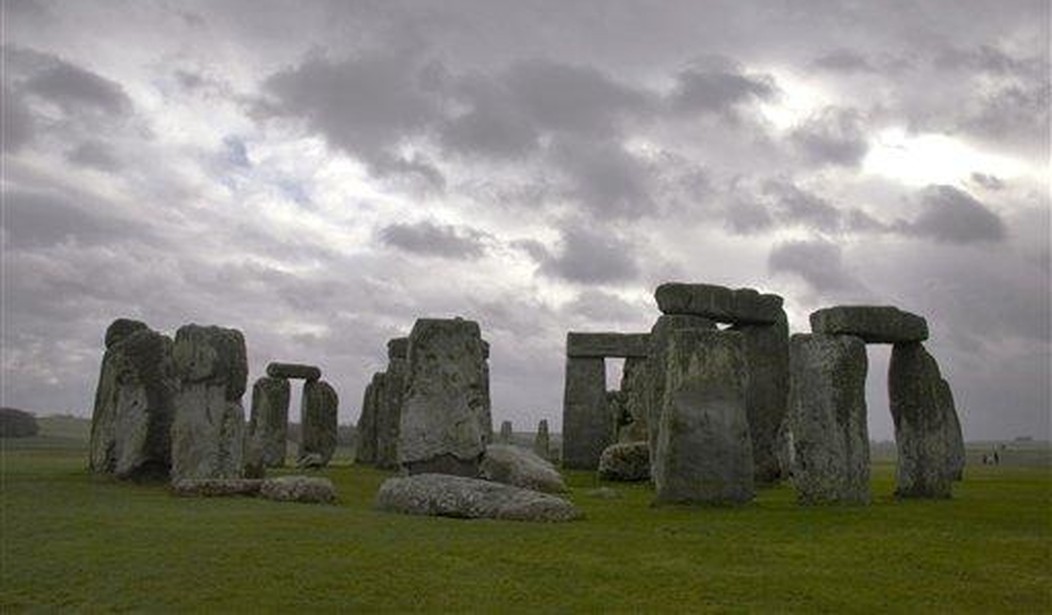I’m a sucker for stuff like this. Today Ezra Klein interviewed neuroscientist Dean Buonomano about the nature of time. It’s an interesting discussion which covers both the physics and the biological experience of time both personally and archaeologically. Buonomano is the author of a book titled “Your Brain is a Time Machine” so he seems very well-versed in this topic. The conversation lasted an hour so it’s impossible to summarize but I’ll highlight a few interesting passages. I liked this bit about how man’s ability to use time is in some sense what separates us from other animals and what ultimately made civilization possible.
The brain’s main tasks, in many ways, is to use the past to anticipate the future. And that’s something everybody is doing. Right now, you’re unconsciously attempting to predict the future.
And if I were to — [PAUSE] — pause my speech there — sorry to make you nervous — you would notice that pause because you were predicting I was about to say something. I created a temporal prediction error.
So all animals have this ability to anticipate and predict time and be aware of time on this short scale. And the degree to which animals predicted what’s about to happen translated very effectively into the evolutionary currency of survival and reproduction.
But humans came along and did something radically different. They were able to not just try to predict the future but create it. So think about something like agriculture. For most of evolution, animals sought food. And survival required figuring out where food sources would be.
And humans came up with idea of creating food — in essence, planting a seed and reaping the fruits of that action sometime in the future. And that ability to conceptualize cause and effect across months or years is something that really evades the cognitive capacity of most animals.
A bit later he comes back to this idea of how the measurement of time is one of mankind’s core competencies.
So the evolution of human culture and civilization has really tracked the creation of more and more sophisticated clocks, going back from sundials to hourglasses, to water clocks, to mechanical clocks, pendulum clocks, quartz crystals, and today, atomic clocks. So human civilization has been accompanied by this endless quest to measure time with more and more and more accuracy.
And this quest has been absurdly successful, in that today, we measure time with more accuracy than we measure anything else, including distance or mass. Indeed, today, we define space using time. A meter is defined by how far light travels in one second.
So for reasons that aren’t always immediately clear, we have had an obsession with measuring time. And it has had profound impacts on society and culture. Some people have argued that during the Industrial Revolution, that was driven by the invention of the steam engine. But other people have argued that, well, it was really the availability of clocks, of cheap clocks that were widely available to the population and the people who worked in factories that allowed for the Industrial Revolution.
Because in the factories, you needed to synchronize human behavior. You need to synchronize work hours in which everybody had to show up at the same time to do the production lines that were being created at the time.
I found myself thinking of Stonehenge and the other ancient stone monuments which are clearly designed to mark the procession of the earth around the sun. These were obviously very important, even religious concepts people were thinking about thousands of years ago.
Finally the conversation comes back to time itself. What is it and how should it be understood in light of modern science. Here Buonomano says there are basically two view that are most widely held, presentism and eternalism.
It is counterintuitive. It is surprising. Because in our day-to-day life, there’s nothing as salient as the fact that the present is fundamentally different from the past and the future. The past no longer exists. We can’t manipulate it. And the future, hopefully we can by our actions that take place in the present. And so that is what we would call presentism, this idea that the past no longer exists, the present is where we exist, and the future doesn’t exist yet.
But the counter view, called eternalism — and that’s similarly also called the block universe — their view is that, in many ways, here is to space as now is to time. In other words, it’s arbitrary…
Why I’m bringing that up is probably the best way, the most intuitive way to think of the difference between presentism and eternalism is that under presentism, time travel, as we see in the movies — true time travel, where you can go forward and backwards — is absolutely impossible. It’s off the table. Because there’s nowhere to go. I can’t go back to visit my grandparents, because they no longer exist. So under presentism, time travel is off the table.
Under eternalism, time travel is on the table.
There’s a lot more to the conversation but it’s all pretty interesting if you like this sort of thing. I’ve added Buonomano to my wish list.








Join the conversation as a VIP Member